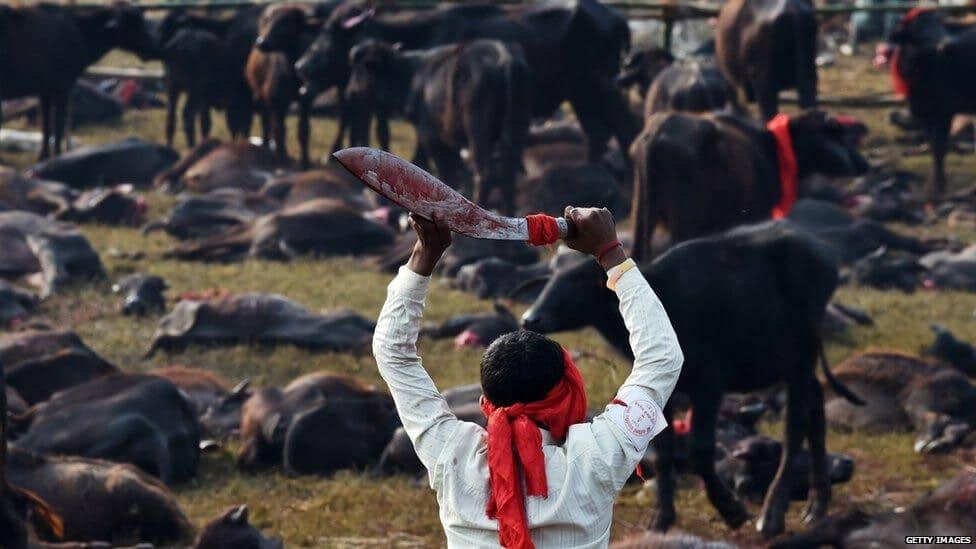
What is Nepal's Gadhimai Festival, dubbed the world's 'bloodiest' event
What's the story
The Gadhimai festival, a Hindu religious festival celebrated once every five years in southeastern Nepal close to the Indian border, has become infamous as "the world's bloodiest" for its mass animal sacrifices. The festival dates back centuries and sees animals being sacrificed to appease the Hindu goddess Gadhimai. Devotees believe it will bring them prosperity. The animals sacrificed include rats, pigeons, goats, and water buffalos. Around 250,000 animals were sacrificed at the festival in 2019, Humane Society International (HSI) said.
Ritual details
Festival's history and rituals under scrutiny
The practice of animal sacrifice at the Gadhimai festival was started by Bhagwan Chowdhary, the founder of the Gadhimai temple in Bariyarpur, Bara District. Legend has it Chowdhary dreamt the goddess Gadhimai promised power and prosperity in return for a blood sacrifice. Initially, human blood was sought, but Chowdhary offered animal blood instead. Today, the month-long festival culminates with ritualistic killings late in the year. Animals are brought even from India for sacrifice.
Court rulings
Legal interventions and continued sacrifices
Before this year's festival, animal rights activists gathered on the border to assist Indian authorities in intercepting and confiscating animals. In total, activists rescued almost 750 animals. Efforts to stop the killings have also included petitions to courts in Nepal and India. In 2009, the Nepalese government said it wouldn't use force to stop sacrifices due to religious sentiments, while India's Supreme Court ordered states bordering Nepal to limit animal transport for the festival in 2014.
Future prospects
Temple caretakers' stance and ongoing legal battle
Then in 2015, temple caretakers claimed future festivals would be "free from bloodshed," but later clarified that devotees couldn't be forced to stop sacrifices. In 2016, Nepal's Supreme Court ordered a phase-out of animal sacrifices. However, the ruling has largely been ignored as killings continued in 2019, forcing opponents to file a case against temple caretakers and the government for violating this ruling.